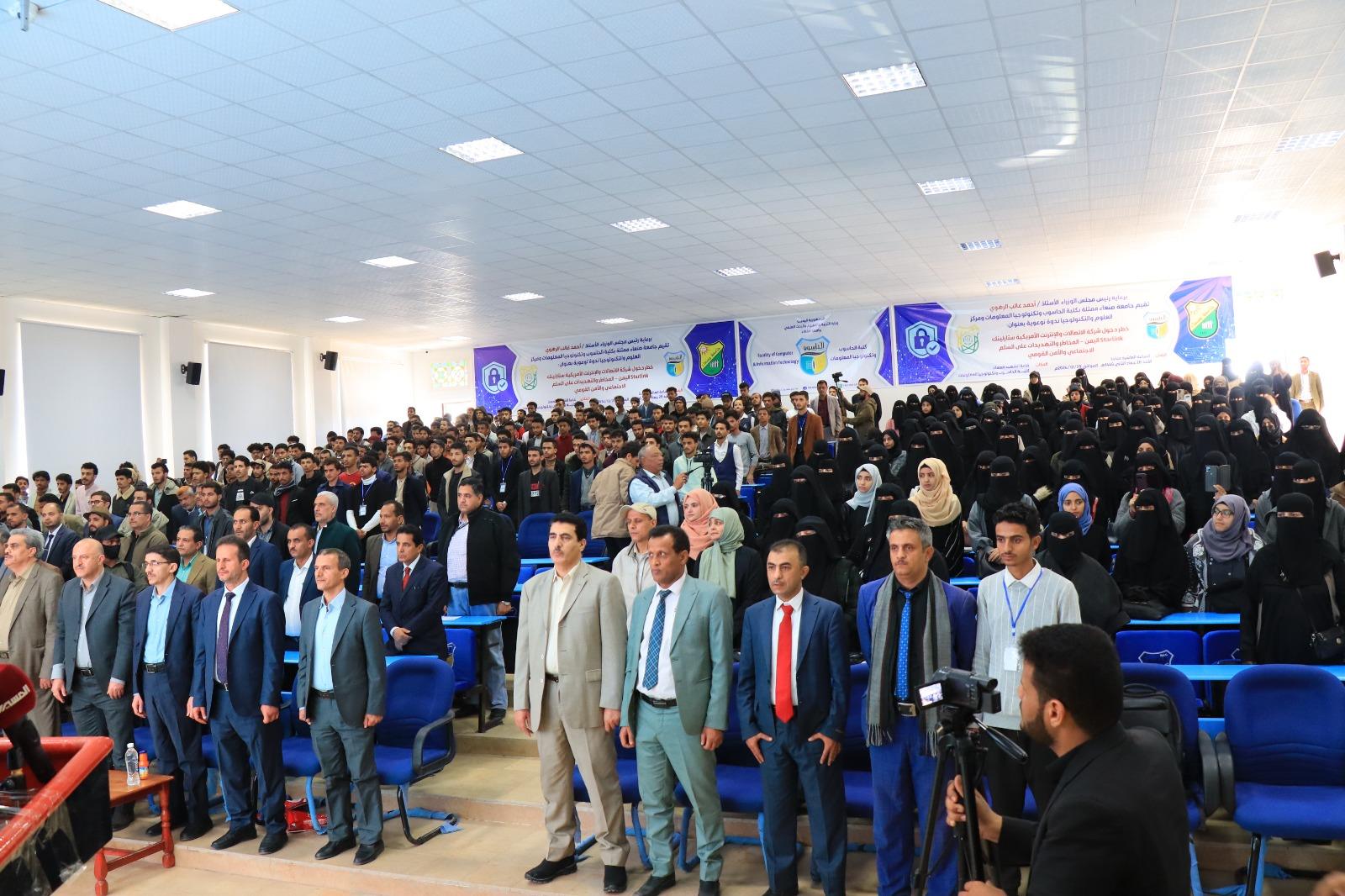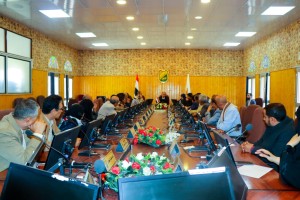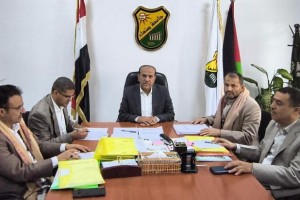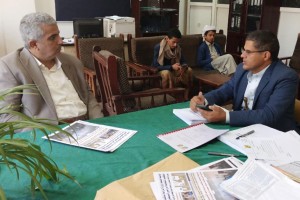Sana’a University Hosts an Intellectual Seminar on the Risks of Satellite Internet

The Faculty of Computer and Information Technology, in collaboration with the Science and Technology Center (STC) at Sana’a University, organized an awareness seminar titled “The Danger of Satellite Internet: Risks and Threats to Social Stability and National Security.”
Attended by the Minister of Education and Scientific Research, Mr. Hasan Al-Saadi, the seminar featured an address by the Rector of Sana’a University, Prof. Al-Kasem Mohammed Abbas, in which he stressed the critical need to shed light on the potential threats of satellite internet on Yemen’s national and informational security, asserting that control over information translates to control over the world, as it constitutes an interconnected system.
Prof. Abbas highlighted that operators of satellite internet are keen to introduce this hazardous system into Yemen, noting its potential ability to manipulate information and pose significant threats to national security.
In his statement, Dr. Ahmed Al-Shalabi, Dean of the Faculty of Computer and Information Technology, emphasized the growing integration of technology into everyday life, spanning fields such as medicine, intellectual activities, economics, and the Internet of Things. He also noted that modern warfare is even more electronic, with global powers racing to secure information dominance and technological control.
The seminar featured three key papers, the first paper, “Threats and Risks to National Security,” was delivered by Dr. Abdulwasi’ Al-Azani, Head of the Department of Cybersecurity and Digital Investigation. He discussed definitions of cybersecurity, its tasks, and its role in safeguarding information assets against threats processed, stored, or transmitted through interconnected information systems.
The second paper, presented by Dr. Mohammed Al-Jawda, focused on “Social and Cultural Threats and Risks,” exploring the ethical consequences of open internet access on individual privacy and personal security, through modern tracking technologies, data collection, information manipulation, cybercrimes, and social engineering.
In the third paper, Dr. Rana Hashem from the Public Telecommunications Corporation addressed the economic threats and risks of satellite internet, highlighting its potential impact on telecommunication companies and the national economy.
The seminar’s participants recommended strengthening national computing and telecommunications infrastructure, investing in the development of fiber-optic networks, and expanding 4th and 5th generation network coverage to enhance local service quality and compete with satellite internet. They also called for efforts to locally develop alternative computing technologies to ensure national sovereignty in the computing field and protect digital national security.
Participants also urged the enactment of legislation to safeguard national data, regulate and monitor the telecommunications market, and manage data exchange. They proposed implementing strict laws to prevent data leakage abroad, requiring national companies to store data locally, and setting clear standards for cooperation with foreign satellite internet providers.
The recommendations also emphasized supporting higher education and scientific research in computing, fostering local innovation, and investing in educational and training programs in the field of computing. They encouraged trusting and supporting national companies with accessible financing and technical assistance to improve local internet services.
In conclusion, they called for launching community awareness programs to educate the public on the risks of satellite internet to national security, the economy, and the country’s social and cultural fabric.
Discover more from Sana'a University
Subscribe to get the latest posts sent to your email.























